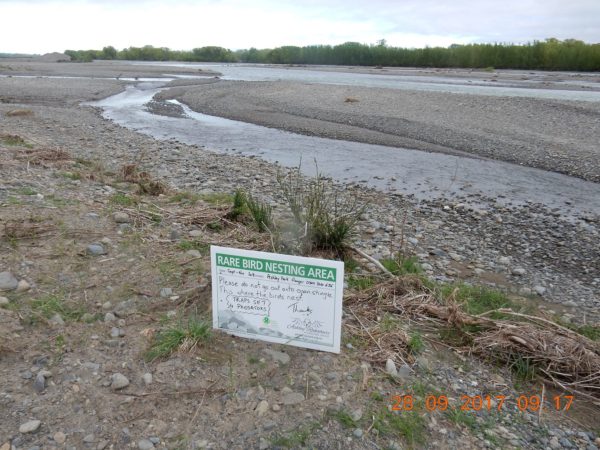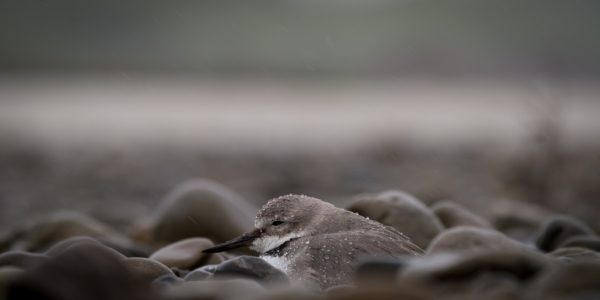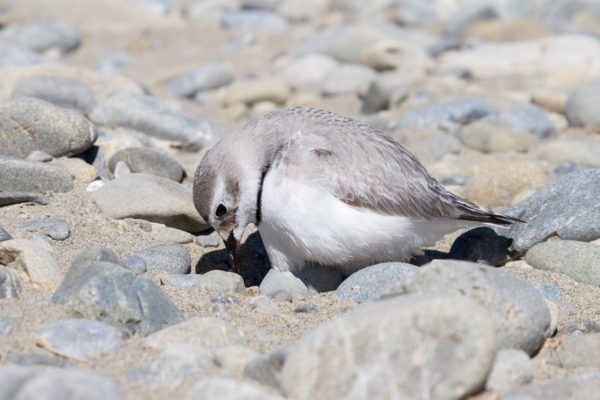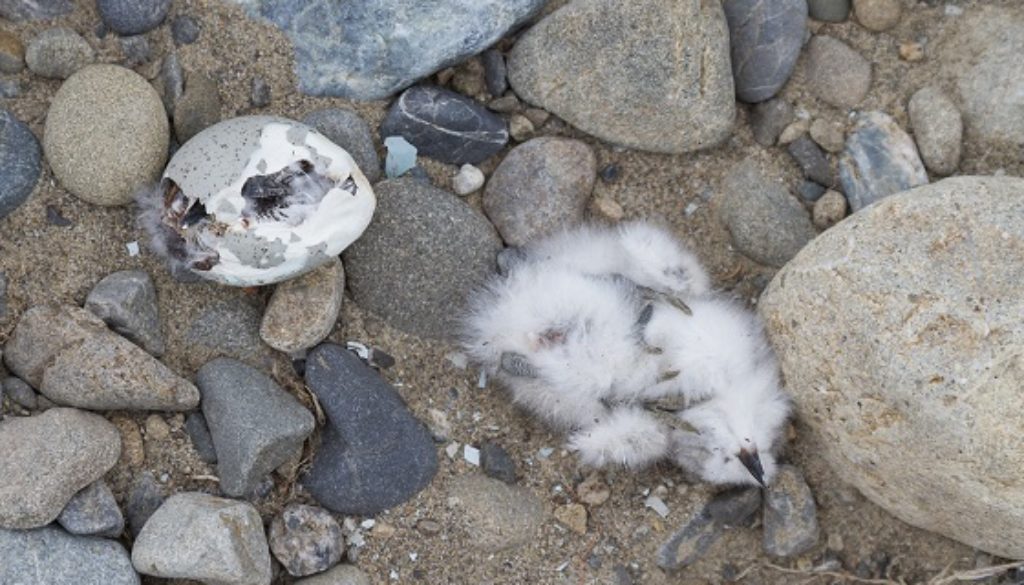Wrybill chick killed by 4×4 driver
Life is hard if you are a nationally vulnerable wrybill and are trying to nest on the bed of the Ashley River. Over recent years, fewer have been able to find suitable nesting sites because of weed infestation. This nesting season the weeds have been largely removed by floods. However, one flood occurred at the wrong time for several nesting pairs, and eggs were washed away. This is a naturally occurring event, and the birds re-nested.
But what happened to a nesting pair last week was not natural.

This particular wrybill pair first arrived on the river in mid-September. Their 2-egg nest was found on October 3, but was washed out by a large flood on October 9. Hours earlier, Ashley Rakahuri Rivercare Group member, Grant Davey, photographed the female trying to sit out the storm. But the nest went under that night.

Three days later the male bird was spotted close to the nest site, but it was not until the end of the month that the female had built up enough reserves to lay two more eggs close to the old nest site. Both birds were particularly trusting, and if Grant crawled on his belly he was able to get close enough for good images of the birds on eggs.

He was keenly awaiting hatching and a chance to follow the chicks feeding on a nearby braid when the 4WD (or two) ended the story. It’s doubtful the birds will try again – and probably best if they do not, as by the time any eggs hatch the river could well have run dry.
Needless to say, it is sad to record this loss, but we hope the story will deter others from driving on braided rivers during the bird breeding season. We would like to remind such people that the maximum penalty for killing protected wildlife is a $100,000 fine and up to 2 years in jail.




